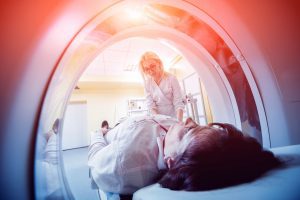A University of Central Florida researcher is part of a study, which has found that artificial intelligence (AI) can detect COVID-19 in the lungs like a virtual physician.
Because COVID-19 looks similar to influenza-associated pneumonia, CT scans are generally not a recommended Diagnostics tool. But in an amazing development, the UCF algorithm can overcome these challenges by accurately identifying COVID-19 cases and distinguishing them from influenza.
The study, published in Nature Communications, showed that the AI approach can overcome some of the challenges associated with current COVID-19 testing.
“We demonstrated that a deep learning-based AI approach can serve as a standardized and objective tool to assist healthcare systems as well as patients,” Ulas Bagci, assistant professor in UCF’s department of computer science, said in the study.
“It can be used as a complementary test tool in very specific limited populations, and it can be used rapidly and at large scale in the unfortunate event of a recurrent outbreak.”
What Did Researchers Discover
Researchers uncovered that the AI algorithm could be trained to separate COVID-19 pneumonia in CT scans with 90% accuracy. It can also be used to identify positive cases 84% of the time and negative cases 93% of the time.
As part of the study, researchers trained a computer algorithm to recognize COVID-19 in lung CT scans in 1,280 multinational patients from China, Japan, and Italy. The algorithm was tested on CT scans of 1,337 patients with lung disease ranging from COVID-19 to cancer and non-COVID pneumonia.
When the computer diagnoses were compared with ones confirmed by physicians, researchers uncovered that the algorithm accurately diagnosed COVID-19-pneumonia in the lungs. Additionally, the algorithm separated COVID-19 from other diseases, specifically when examining CT scans in the early stages of disease progression.
Along with UCF researchers, esteemed individuals like Baris Turkbey (Associate Researcher Physicians at NIH’s National Cancer Center Institute Molecular Imaging Branch) and Bradford J. Wood, (Director of The Center for Interventional Oncology and chief of interventional radiology at NIH) participated in the study. Both the NIH and the National Cancer Institute helped to fund the study.
What are the Benefits
During the COVID-19 pandemic, virtual imaging has been extremely beneficial to both patients and scientists. Typically, COVID-19 lab tests can take up to two days to complete, but CT scans have the potential to analyze large amounts of data quickly.
A study published in the American Journal of Roentgenology (AJR), found that the use of virtual imaging trials in assessment and optimization of CT and radiography acquisitions, as well as various analysis tools, can help manage the pandemic.
Using a specific CT scanner and validated radiography simulator to help illustrate the benefit, researchers virtually imaged three developed COVID-19 computational phantoms, which is a mathematical representation of the human body.
The study found that the simulated abnormalities were realistic regarding shape and texture.
Hollywood Diagnosticss Center has been recognized as a leader in the medical Diagnosticss field while performing over 30,000 Diagnostics procedures annually. This includes the CT SCANS discussed in this article. The center continues to be at the forefront of medical technology by progressively updating its equipment and procedures to reflect the latest advances in medicine. HDC is your complete, one source provider of all Diagnostics services.
If you, or someone you know requires an MRI in South Florida, then contact us today at (954) 966-3600!

